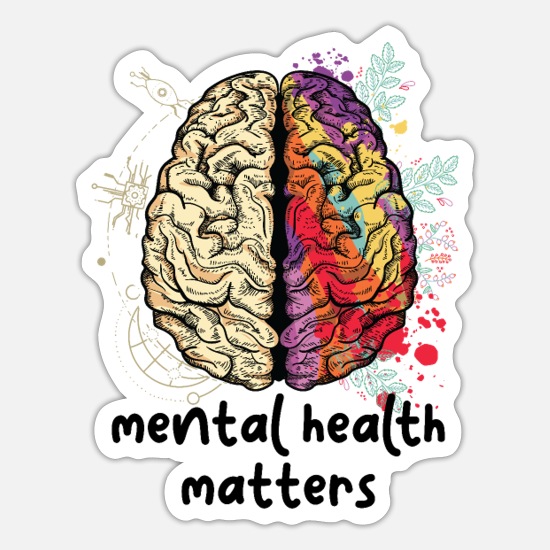Mental Health and Emotional Impact: Understanding and Managing Emotional Well-being

Mental health is a critical component of overall well-being, influencing how we think, feel, and act in our daily lives. Emotional health, a key aspect of mental health, encompasses the ability to manage and express emotions effectively, cope with stress, and maintain a positive outlook. Understanding the emotional impact on mental health and implementing strategies to manage it can enhance resilience and improve quality of life. This article explores the emotional impact on mental health, its significance, and practical approaches to managing emotional well-being.
The Significance of Emotional Health
Emotional health refers to the capacity to recognize, understand, and manage one’s emotions in a constructive manner. It plays a crucial role in:
Self-Awareness:
Emotional health involves being aware of and understanding one’s emotions. This self-awareness helps individuals identify triggers, recognize patterns, and gain insight into their emotional responses.
Emotional Regulation:
Effective emotional health allows individuals to regulate their emotions, avoiding extreme reactions and maintaining emotional balance. This regulation is essential for coping with stress and managing daily challenges.
Resilience:
Emotional health contributes to resilience, enabling individuals to bounce back from setbacks, adapt to changes, and recover from adversity. Resilient individuals can maintain a positive outlook even in difficult situations.
Interpersonal Relationships:
Emotional health impacts the quality of relationships with others. Healthy emotional expression and communication foster stronger, more supportive relationships with family, friends, and colleagues.
Mental Well-being:
mental health is closely linked to overall mental well-being. Positive emotional health can reduce the risk of mental health disorders such as anxiety and depression, while poor emotional health can contribute to these conditions.
Emotional Impact on Mental Health
Stress
Chronic stress is a significant factor impacting emotional and mental health. Prolonged exposure to stress can lead to emotional exhaustion, irritability, and difficulty managing emotions. It can also contribute to mental health conditions such as anxiety and depression.
Trauma:
Experiencing traumatic events, such as abuse, loss, or significant life changes, can have a profound emotional impact. Trauma can lead to persistent emotional distress, including feelings of fear, sadness, and helplessness, affecting overall mental health.
Grief:
The process of grieving after the loss of a loved one or significant life change can deeply affect emotional well-being. Grief can lead to a range of emotions, including sadness, anger, and guilt, impacting mental health and daily functioning.
Self-Esteem:
Low self-esteem and negative self-perception can affect emotional health and mental well-being. Individuals with low self-esteem may experience feelings of inadequacy, worthlessness, and self-doubt, contributing to mental health challenges.
Coping Mechanisms:
The effectiveness of coping mechanisms plays a crucial role in managing emotional impact. Healthy coping strategies, such as problem-solving and seeking support, can mitigate the negative effects of stress and emotional challenges, while maladaptive coping, such as substance abuse, can exacerbate mental health issues.
Emotional Expression:
Difficulty in expressing emotions can lead to emotional suppression, which can contribute to mental health problems. Effective emotional expression is essential for processing feelings and seeking support.
Strategies for Managing Emotional Well-being
Develop Self-Awareness:
Practicing mindfulness and self-reflection can enhance self-awareness. Understanding one’s emotional triggers and responses helps in managing emotions more effectively.
Practice Emotional Regulation:
Techniques such as deep breathing, meditation, and progressive muscle relaxation can help regulate emotions. These practices promote calmness and reduce emotional reactivity.
Seek Professional Help:
Consulting with mental health professionals, such as therapists or counselors, can provide valuable support in managing emotional challenges. Therapy can offer tools for coping with stress, trauma, and other emotional issues.
Build a Support Network:
Maintaining strong social connections is essential for emotional health. Support from friends, family, or support groups can provide comfort, validation, and practical assistance during challenging times.
Engage in Self-Care:
Regular self-care practices, such as exercise, healthy eating, and sufficient sleep, contribute to overall emotional well-being. Engaging in activities that bring joy and relaxation can also improve mental health.
Develop Healthy Coping Strategies:
Identifying and practicing healthy coping mechanisms, such as problem-solving, journaling, or engaging in hobbies, can help manage stress and emotional challenges effectively.
Set Realistic Goals:
Setting achievable goals and focusing on small, incremental steps can help manage stress and build confidence. Celebrating progress and accomplishments enhances emotional well-being.
Practice Gratitude:
Cultivating gratitude by recognizing and appreciating positive aspects of life can improve emotional health. Keeping a gratitude journal or regularly reflecting on positive experiences can foster a positive mindset.
Learn Emotional Expression:
Developing skills for healthy emotional expression, such as assertive communication and expressing feelings constructively, can improve relationships and emotional health.
Engage in Relaxation Techniques:
Incorporating relaxation techniques, such as yoga, tai chi, or mindfulness meditation, into daily routines can help manage stress and enhance emotional balance.
Overcoming Challenges in Emotional Management
Addressing Stigma:
There can be stigma associated with seeking help for emotional and mental health issues. Overcoming this stigma by advocating for open conversations and seeking support is essential for effective management.
Managing Resistance:
Individuals may face resistance to adopting new coping strategies or making lifestyle changes. Persistence, patience, and gradual implementation of new practices can help overcome these barriers.
Navigating Emotional Complexity:
Emotions can be complex and multifaceted. Seeking guidance from mental health professionals and using effective coping strategies can help navigate the complexity of emotional experiences.
Conclusion
Understanding the emotional impact on mental health and implementing strategies to manage emotional well-being is crucial for maintaining overall mental health. By developing self-awareness, practicing emotional regulation, and seeking support, individuals can enhance their resilience and quality of life. Addressing emotional challenges effectively contributes to a healthier, more balanced approach to mental well-being. Embracing strategies for managing emotions and seeking professional help when needed can lead to improved emotional health and overall mental wellness.




